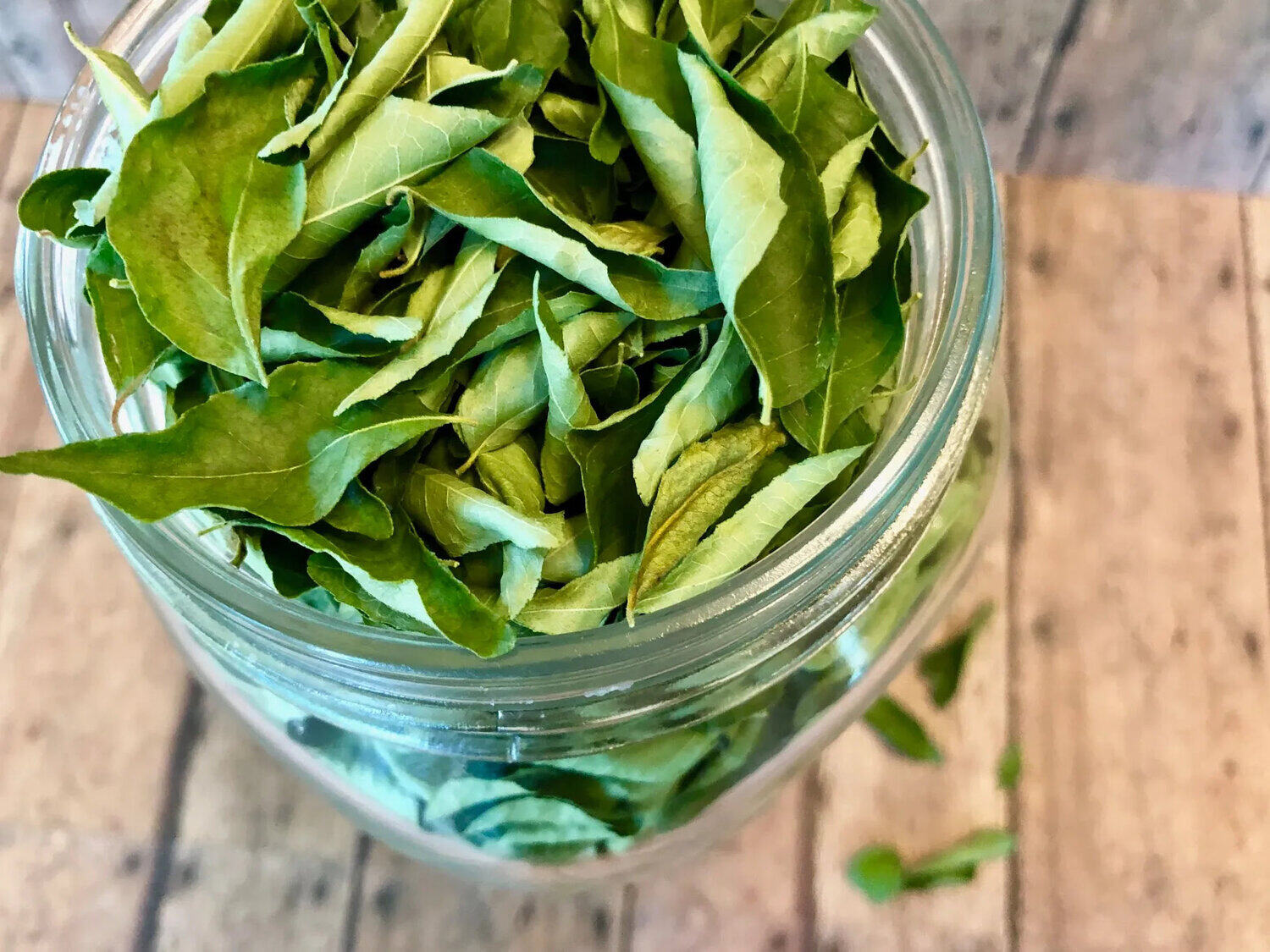

Articles
How To Store Curry Leaves For Long Time
Modified: December 7, 2023
Learn how to store curry leaves for a long time with our informative articles. Discover tips and techniques to preserve the freshness and flavor of these aromatic leaves.
(Many of the links in this article redirect to a specific reviewed product. Your purchase of these products through affiliate links helps to generate commission for Storables.com, at no extra cost. Learn more)
Introduction
Curry leaves, with their distinct aroma and unique flavor, are an essential ingredient in many Indian dishes. These vibrant green leaves not only add a delightful taste to curries, but they also offer a range of health benefits. However, finding fresh curry leaves can be quite challenging, especially if you don’t have access to a local market that stocks them. This is where the importance of storing curry leaves for a long time comes into play.
By properly storing curry leaves, you can ensure that you always have a supply of fresh leaves on hand, even when they are not readily available. Storing curry leaves not only preserves their freshness and flavor but also helps to retain their nutritional value. In this article, we will explore different methods for storing curry leaves, so you can enjoy their goodness whenever you need them.
But first, let’s understand why it is crucial to store curry leaves properly. Curry leaves are rich in essential nutrients such as iron, calcium, vitamin C, and antioxidants. These nutrients contribute to improved digestion, enhanced hair health, strengthened immune system, and reduced oxidative stress. However, like any other herb or leafy green, curry leaves tend to wilt and lose their nutritional potency over time. That’s why it is essential to store them correctly to prolong their shelf life and retain their nutritional value.
Now that we understand the importance of storing curry leaves, let’s explore different methods that you can use to keep them fresh and flavorful for an extended period. Whether you prefer refrigerating, freezing, drying, or storing them in oil, there is a method suitable for your preferences and needs. Each method offers its own advantages and ensures that you have a fresh supply of curry leaves whenever you need them.
In the following sections, we will delve into each storage method in detail, providing you with step-by-step instructions and helpful tips for successful preservation. So, let’s get started and learn how to store curry leaves effectively for a long time, ensuring that you never run out of this aromatic herb in your kitchen.
Key Takeaways:
- Preserve the vibrant flavor and health benefits of curry leaves by refrigerating, freezing, drying, or storing them in oil. Enjoy convenience, cost-effectiveness, and extended shelf life while enhancing your culinary creations.
- Select fresh curry leaves, clean and dry them thoroughly, and store in airtight containers at the correct temperature to maintain their freshness and flavor. Follow simple methods to ensure a constant supply of this aromatic herb for your cooking needs.
Why Store Curry Leaves?
Curry leaves are not only famous for their distinct flavor and enticing aroma but are also packed with numerous health benefits. They are widely used in Indian cuisine to enhance the taste and aroma of various dishes, ranging from curries to chutneys and even desserts. With their rich nutritional profile and culinary versatility, it’s no wonder that curry leaves are a staple in many households.
However, the shelf life of fresh curry leaves is relatively short, making it difficult to always have a fresh supply on hand. That’s where storing curry leaves becomes essential. Here are a few reasons why you should consider storing curry leaves for a long time:
1. Convenience: By storing curry leaves, you can have them readily available whenever you need them. This saves you from the hassle of running to the store or searching for fresh curry leaves every time you want to add that authentic flavor to your dishes. Having a stockpile of curry leaves allows you to conveniently incorporate them into your cooking without any delays.
2. Cost-effectiveness: Buying fresh curry leaves can sometimes be expensive, especially if they are not locally available or in season. By storing curry leaves, you can take advantage of buying them in bulk when they are readily available and more affordable. This not only saves you money but also ensures that you have a constant supply of curry leaves without worrying about fluctuating prices.
3. Extended shelf life: Fresh curry leaves have a short shelf life and tend to wilt and lose their flavor within a few days. By storing them properly, you can extend their freshness and maintain their aromatic properties for a much longer time. This allows you to use them in your recipes even when they are not in season or readily available.
4. Nutritional value: Curry leaves are not just flavorful; they are also packed with beneficial nutrients. Storing curry leaves correctly helps retain their nutritional value, ensuring that you can enjoy their health benefits even after an extended period of time. By having a stash of curry leaves, you can easily incorporate them into your diet and reap their antioxidant, anti-inflammatory, and digestion-boosting properties.
5. Versatility: Curry leaves are not limited to curries alone. They can be used in a variety of dishes, including soups, stir-fries, and even beverages. By storing curry leaves, you open up a world of culinary possibilities, allowing you to experiment and create delicious recipes without worrying about the availability of fresh leaves.
Storing curry leaves not only ensures their availability and convenience but also helps you make the most of their flavor and health benefits. Now that we understand the importance of storing curry leaves, let’s explore the different methods you can use to preserve them for a long time.
Different Methods for Storing Curry Leaves
When it comes to storing curry leaves for a longer period, there are several methods to choose from. Each method offers its own advantages and allows you to preserve the aroma, flavor, and nutritional value of the leaves. Let’s explore four popular methods for storing curry leaves:
1. Refrigerating Curry Leaves:
Refrigeration is a simple and effective method to store curry leaves. Here’s how to do it:
– Place the curry leaves in an airtight container or a zip-top bag.
– Make sure to remove any excess moisture from the leaves before storing them.
– Place the container or bag in the refrigerator’s vegetable compartment or the coldest part of the fridge.
– The leaves can stay fresh for up to 1-2 weeks when stored properly in the refrigerator.
2. Freezing Curry Leaves:
Freezing curry leaves is another excellent method to preserve their freshness and flavor. Here’s what you need to do:
– Wash the curry leaves and pat them dry with a paper towel.
– Spread the leaves in a single layer on a baking sheet and freeze them for a couple of hours.
– Once frozen, transfer the leaves to an airtight container or a freezer bag.
– Label the container with the date and store it in the freezer.
– Frozen curry leaves can last for up to 6-8 months.
3. Drying Curry Leaves:
Drying curry leaves is a popular method that allows you to enjoy their flavor even when they are not in season. Here’s how to dry curry leaves:
– Wash the leaves and pat them dry with a paper towel.
– Spread the leaves on a clean kitchen towel or a wire rack in a well-ventilated area.
– Let the leaves air dry for a few days until they become crisp and brittle.
– Once dry, store the leaves in an airtight container or a glass jar.
– Dried curry leaves can last for up to 6-12 months when stored in a cool, dry place away from sunlight.
4. Storing Curry Leaves in Oil:
Storing curry leaves in oil is an excellent way to preserve their flavor and aroma while infusing the oil with their essence. Here’s what you need to do:
– Wash the curry leaves and pat them dry thoroughly.
– Heat a small amount of oil (such as coconut oil or sesame oil) in a pan over low heat.
– Add the curry leaves to the hot oil and let them crisp up for a minute or two.
– Once the leaves are crispy, turn off the heat and let the oil cool down.
– Transfer the curry leaves along with the oil to a clean, airtight glass jar.
– Store the jar in a cool place and use the oil with the infused curry leaves in your cooking.
– The oil can last for several weeks, and the curry leaves will remain aromatic and flavorful.
Choosing the right method for storing curry leaves depends on your preferences and the length of time you want to preserve them. Whichever method you choose, you can always have a stash of fresh curry leaves ready to elevate your culinary creations.
Method 1: Refrigerating Curry Leaves
Refrigerating curry leaves is one of the simplest and most effective methods to store them for an extended period. By keeping them in the refrigerator, you can maintain their freshness and flavor for up to 1-2 weeks. Here’s how you can refrigerate curry leaves:
1. Purchase fresh curry leaves: Start by selecting fresh curry leaves from your local market or grocery store. Look for vibrant green leaves that are free from any browning or wilting.
2. Clean and dry the leaves: Before refrigerating, it’s important to clean the curry leaves thoroughly. Take a bowl of water and gently swish the leaves in it to remove any dirt or impurities. Then, pat them dry with a clean kitchen towel or paper towels. Removing excess moisture is crucial to prevent the leaves from getting spoiled in the refrigerator.
3. Prepare an airtight container: Get an airtight container or a zip-top bag that is large enough to accommodate the curry leaves without overcrowding. Make sure the container is clean and dry before using it for storage.
4. Store the leaves in the container: Place the dried curry leaves inside the airtight container. If needed, you can separate the leaves into smaller batches or layers, but make sure not to crush or compact them too tightly.
5. Remove excess air: Before sealing the container, try to remove as much air as possible. This will help in preventing moisture buildup, which can lead to wilting and spoilage of the leaves. Zip the bag tightly or close the container lid securely.
6. Store in the refrigerator: Finally, place the container of curry leaves in the vegetable compartment or the coldest part of your refrigerator. The optimal temperature for storing curry leaves is around 40°F (4°C). Avoid storing them in the door of the fridge as it is more prone to temperature fluctuations.
7. Check and use as needed: Regularly check on the curry leaves to ensure they are staying fresh. If you notice any signs of browning or wilting, remove those leaves to prevent them from spoiling the rest. When you’re ready to use the refrigerated curry leaves, take out as many as you need and return the remaining leaves to the refrigerator promptly.
Refrigerating curry leaves is a convenient method that allows you to have easy access to fresh leaves whenever you need them. It’s important to note that while refrigeration can extend the shelf life of curry leaves, it is still advisable to use them within 1-2 weeks for optimal flavor and quality.
By following these steps, you can store curry leaves in the refrigerator and ensure that you always have this flavorful herb on hand to enhance your dishes and enjoy the benefits of its nutritional value.
Method 2: Freezing Curry Leaves
Freezing curry leaves is a great method to store them for an extended period, ensuring that you always have a supply of fresh leaves on hand. Freezing not only helps to maintain the flavor and aroma of the leaves but also preserves their nutritional value. Here’s a step-by-step guide on how to freeze curry leaves:
1. Prepare the leaves: Start by selecting fresh and vibrant curry leaves from your local market or garden. Wash the leaves gently under running water to remove any dirt or impurities. Pat them dry with a clean kitchen towel or paper towels. It’s important to ensure that the leaves are completely dry before freezing.
2. Spread the leaves on a baking sheet: Lay the clean and dry curry leaves in a single layer on a baking sheet or tray lined with parchment paper. By spreading them out, you prevent the leaves from sticking together when frozen, making it easier to portion them later.
3. Pre-freeze the leaves: Place the baking sheet with the curry leaves in the freezer. Allow them to pre-freeze for about 1-2 hours. Pre-freezing helps to prevent the leaves from clumping together during the freezing process.
4. Transfer to a freezer-safe container: Once the leaves are pre-frozen, remove the baking sheet from the freezer. Carefully transfer the leaves into a freezer-safe container or a zip-top freezer bag. Ensure that the container or bag is airtight to prevent freezer burn and to maintain the freshness of the leaves.
5. Label and date the container: Label the container or bag with the name and date of freezing. This will help you keep track of the storage time and ensure that you use the oldest leaves first when needed.
6. Place in the freezer: Put the container or bag of curry leaves in the freezer. Store them in a section of the freezer where they won’t be easily disturbed or crushed. The optimal temperature for freezing curry leaves is below 0°F (-18°C).
7. Utilize as needed: When you want to use the frozen curry leaves, simply remove the desired amount from the container or bag and immediately return the rest to the freezer. This way, you can keep the remaining leaves frozen and prevent thawing and refreezing, which can affect their quality.
Frozen curry leaves can be stored for 6-8 months without significant loss in flavor or nutritional value. They are especially useful when fresh curry leaves are not readily available or out of season. Remember to adjust the amount of frozen leaves accordingly as they tend to have a more concentrated flavor compared to fresh leaves.
Freezing curry leaves is a simple and convenient method that allows you to have a ready supply of this aromatic herb whenever you need it. Whether you’re making a curry, a soup, or a flavorful sauce, having frozen curry leaves on hand will add a touch of freshness and authenticity to your dishes.
To store curry leaves for a long time, wash and dry them thoroughly, then place them in an airtight container or zip-top bag and store in the refrigerator. You can also freeze them for even longer storage.
Read more: How To Store Okra For Long Time
Method 3: Drying Curry Leaves
Drying curry leaves is a traditional method of preserving them for an extended period. This method not only lengthens the shelf life of the leaves but also intensifies their flavor, making them a versatile addition to various dishes. Here’s a step-by-step guide on how to dry curry leaves:
1. Harvest fresh curry leaves: Begin by harvesting fresh and healthy curry leaves from your garden or purchasing them from a local market. Choose leaves that are vibrant green and free from any blemishes or signs of wilting.
2. Clean the leaves: Rinse the curry leaves under cool running water to remove any dirt or debris. Gently pat them dry using a clean kitchen towel or paper towels.
3. Air dry the leaves: Spread the curry leaves on a clean and dry kitchen towel or a wire rack. Ensure that the leaves are arranged in a single layer, with enough space between them for adequate airflow. Place the towel or rack in a well-ventilated area away from direct sunlight.
4. Wait for the leaves to fully dry: Allow the curry leaves to air dry for approximately 5-7 days, or until they become crisp and brittle. During this time, the moisture in the leaves will evaporate, resulting in the preservation of their flavor and nutrients.
5. Store the dried leaves: Once the curry leaves are thoroughly dried, carefully remove any stems or twigs that may be present. Place the dried leaves in an airtight container or a glass jar, ensuring that there is minimal exposure to air and moisture. Seal the container tightly to maintain the crispness of the leaves.
6. Choose a suitable storage location: Store the container of dried curry leaves in a cool, dark, and dry place, such as a pantry or a kitchen cupboard. Avoid areas near the stove or any place that experiences frequent temperature fluctuations and humidity.
7. Check for freshness: Periodically check the dried curry leaves to ensure they remain dry and free from moisture. If you notice any signs of dampness or clumping, it is advisable to discard those leaves and replace them with fresh, properly dried ones.
Dried curry leaves can retain their flavor and aroma for 6-12 months when stored correctly. They are perfect for adding a punch of flavor to soups, stews, rice dishes, and even spice blends. When using dried curry leaves in recipes, it’s important to remember that their flavor is more concentrated compared to fresh leaves, so adjust the quantity accordingly.
By following these simple steps, you can enjoy the convenience of having dried curry leaves at your disposal throughout the year. Dried curry leaves not only add a unique and authentic taste to your dishes but also provide a convenient solution when fresh leaves are not readily available.
Method 4: Storing Curry Leaves in Oil
Storing curry leaves in oil is a fantastic method that infuses the oil with the fragrant flavor of the leaves. This not only helps to preserve the freshness of the leaves but also allows you to have both flavorful leaves and aromatic oil for your culinary creations. Here’s a step-by-step guide on how to store curry leaves in oil:
1. Wash and dry the curry leaves: Start by washing the curry leaves thoroughly under cool running water to remove any dirt or impurities. Gently pat them dry using a clean kitchen towel or paper towels. It’s essential to ensure that the leaves are completely dry before proceeding.
2. Heat the oil: Select a high-quality oil that complements the flavor of curry leaves, such as coconut oil or sesame oil. Heat a small amount of the chosen oil in a pan over low heat. As the oil heats up, it releases its natural aroma and enhances the infused flavor of the leaves.
3. Add the curry leaves: Once the oil is heated, carefully add the washed and dried curry leaves to the pan. Allow the leaves to crisp up and become slightly translucent. This process only takes a minute or two, so be vigilant and avoid overcooking the leaves.
4. Let the oil cool: Turn off the heat and let the oil with the infused curry leaves cool down to room temperature. Allowing sufficient cooling time ensures that the flavors of the leaves are fully imparted to the oil.
5. Transfer to a clean container: Once the oil has cooled, strain it to separate the infused curry leaves from the oil. Use a fine-mesh sieve or a cheesecloth to ensure that no residue or solid particles remain in the oil. Dispose of the used curry leaves, as they have served their purpose.
6. Store in an airtight container: Transfer the infused oil into a clean, airtight glass jar or bottle. Make sure the container is dry and seal it tightly to prevent any air or moisture from entering. Properly sealed containers help maintain the freshness and flavor of the infused oil.
7. Store in a cool place: Place the container of curry leaf-infused oil in a cool, dark place away from direct sunlight. It is best to store the oil in a pantry or kitchen cabinet where the temperature remains constant.
The stored curry leaf-infused oil can last for several weeks when stored properly. It can be used in various culinary applications, such as dressings, marinades, or as a flavorful drizzle over cooked dishes. The aroma and taste of the oil will be enhanced by the essence of the curry leaves.
It’s important to note that storing curry leaves in oil does not allow for the long-term preservation of fresh leaves. Instead, it provides an efficient way to utilize the flavor of the leaves, infusing it into the oil for immediate use.
By following these steps, you can store curry leaves in oil and have a versatile ingredient at hand to elevate the flavors of your dishes. Whether you use it as a seasoning, a dressing, or a finishing touch, the curry leaf-infused oil adds a delightful aroma and taste to your culinary creations.
Tips for Storing Curry Leaves Effectively
Storing curry leaves properly is crucial to maintain their freshness, flavor, and nutritional value. Here are some useful tips to help you store curry leaves effectively:
1. Select fresh and vibrant leaves: When buying or harvesting curry leaves, choose ones that are bright green in color and free from any blemishes or signs of wilting. Fresh leaves will have a stronger flavor and aroma, enhancing the taste of your dishes.
2. Clean and dry the leaves thoroughly: Before storing curry leaves, make sure to wash them gently under cool running water to remove any dirt or impurities. Pat them dry using a clean kitchen towel or paper towels to eliminate excess moisture, as moisture can cause the leaves to wilt or spoil quickly.
3. Remove stems and twigs: Before storing the curry leaves, remove any stems or twigs attached to the leaves. Storing only the leaves will help maintain their freshness and eliminate potential sources of moisture that can lead to spoilage.
4. Use airtight containers: Whether refrigerating, freezing, or storing curry leaves in oil, always use airtight containers or zip-top bags. Air exposure can cause the leaves to lose their flavor and become stale quickly. Airtight containers prevent air from entering and help maintain the freshness of the leaves.
5. Label and date the containers: Properly label the containers or bags of stored curry leaves with the date of storage. This will help you keep track of their freshness and ensure that you use the oldest leaves first. It is recommended to use the stored curry leaves within the recommended storage time for the best flavor and quality.
6. Store in the correct temperature and environment: When refrigerating curry leaves, store them in the vegetable compartment or the coldest part of your refrigerator, maintaining a temperature around 40°F (4°C). When freezing curry leaves, place them in the freezer at a temperature below 0°F (-18°C). For dried curry leaves, store them in a cool, dry place away from direct sunlight or any source of heat.
7. Handle with care: When retrieving curry leaves from storage, handle them gently to avoid crushing or bruising the leaves. Rough handling can accelerate wilting and spoilage, reducing the quality and flavor of the leaves.
8. Use proper portioning: When using curry leaves in cooking, only take out the amount you need and return the rest to storage immediately. Frequent thawing and refreezing or exposure to air can affect the quality of frozen or refrigerated curry leaves.
By following these tips, you can ensure that your stored curry leaves retain their freshness and flavor for an extended period. With proper storage, you can enjoy the distinctive taste and aroma of these versatile leaves whenever you need them, enhancing the flavor of your culinary creations.
Conclusion
Storing curry leaves effectively allows you to enjoy the flavors and benefits of these aromatic leaves throughout the year. Whether you choose to refrigerate, freeze, dry, or store curry leaves in oil, each method offers its own unique advantages for preserving their freshness, flavor, and nutritional value.
Refrigeration provides convenience, allowing you to have a ready supply of fresh curry leaves for up to 1-2 weeks. Freezing curry leaves extends their shelf life for months, ensuring you always have access to this versatile ingredient. Drying curry leaves intensifies their flavor and makes them suitable for long-term storage, enabling you to add a punch of taste to your dishes year-round. Storing curry leaves in oil infuses the oil with their essence, providing both flavorful leaves and aromatic oil for your culinary creations.
When storing curry leaves, it is important to select fresh leaves, clean and dry them thoroughly, and use airtight containers to prevent air and moisture from compromising their quality. Proper labeling and storage in the appropriate temperature and environment are also essential for preserving the flavor and nutritional value of the leaves.
By storing curry leaves effectively, you can enjoy the convenience of having this essential ingredient readily available for a variety of dishes. Whether you’re preparing a delicious curry, a fragrant rice dish, or a flavorful chutney, incorporating curry leaves will elevate the taste and aroma of your culinary creations.
So, the next time you come across a fresh bunch of curry leaves, remember to store them effectively using one of the methods mentioned in this article. By doing so, you can ensure that you have a constant supply of these vibrant green leaves to enhance your cooking and savor their distinct flavor.
With the proper storage techniques and a bit of planning, you can make sure that curry leaves are always within reach, allowing you to create delicious and authentic dishes that are truly a delight to the senses. Happy cooking and enjoy the flavors of curry leaves!
Frequently Asked Questions about How To Store Curry Leaves For Long Time
Was this page helpful?
At Storables.com, we guarantee accurate and reliable information. Our content, validated by Expert Board Contributors, is crafted following stringent Editorial Policies. We're committed to providing you with well-researched, expert-backed insights for all your informational needs.
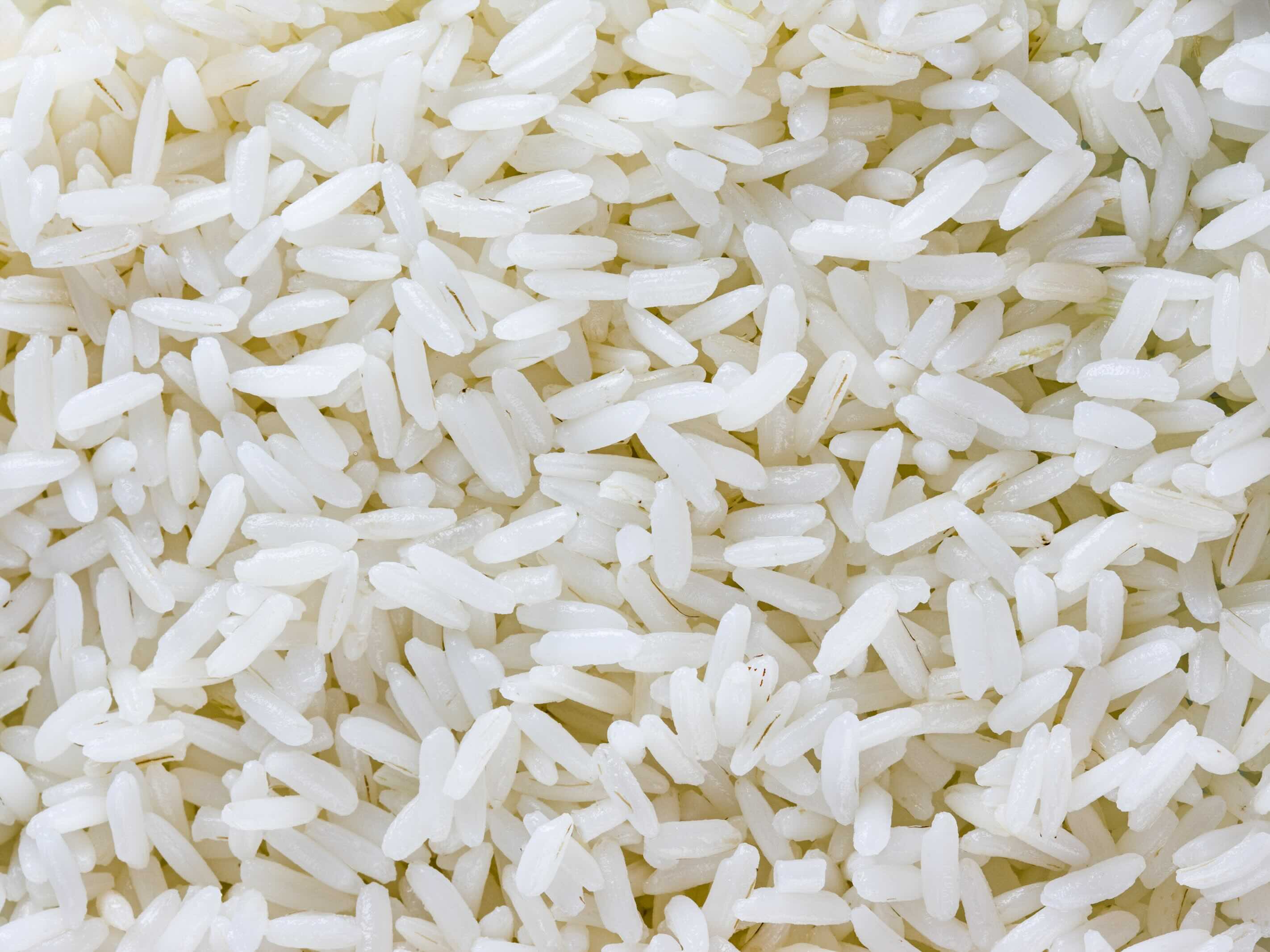

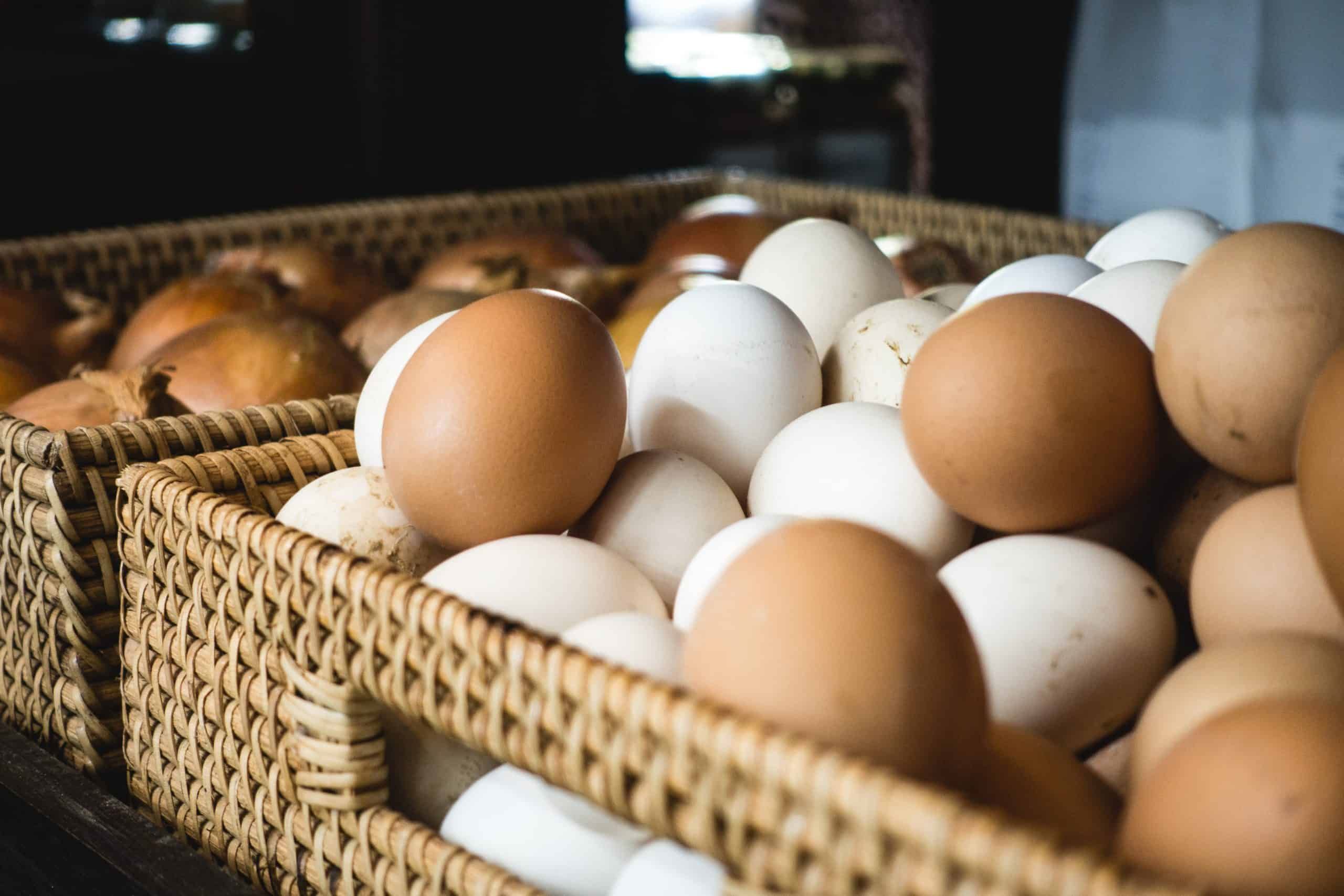



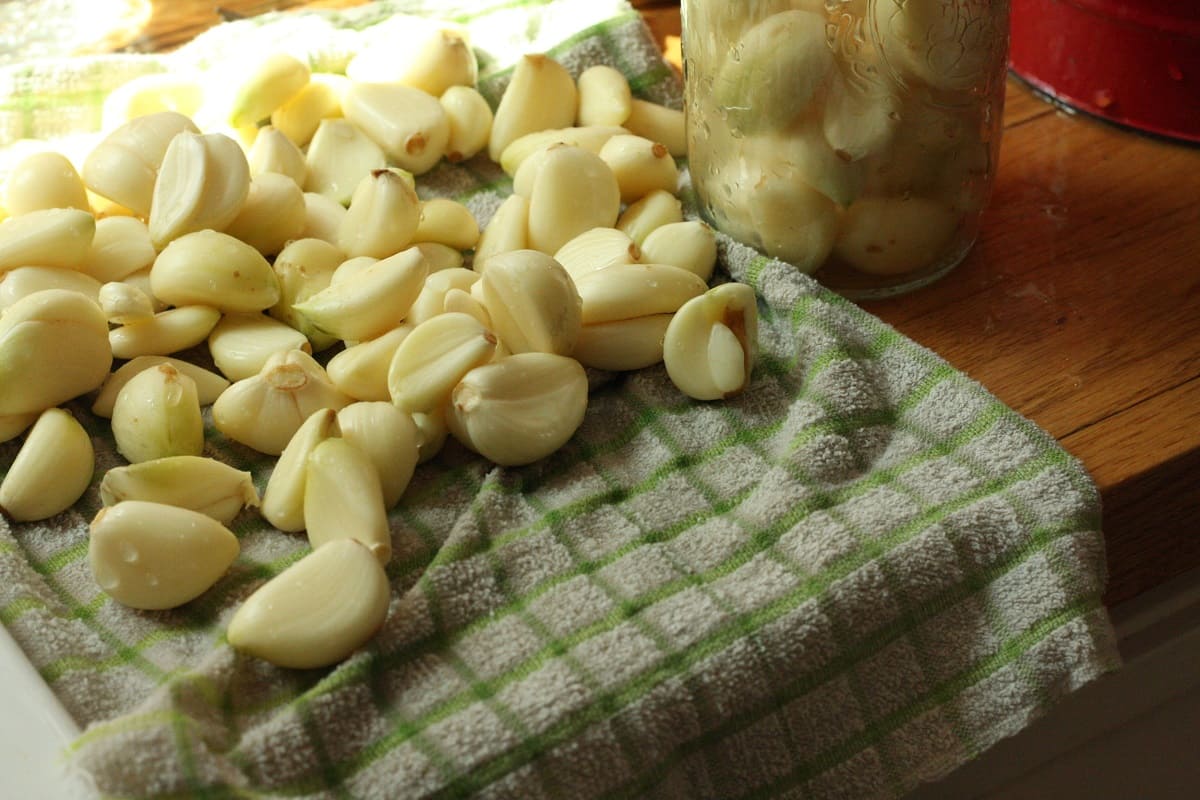
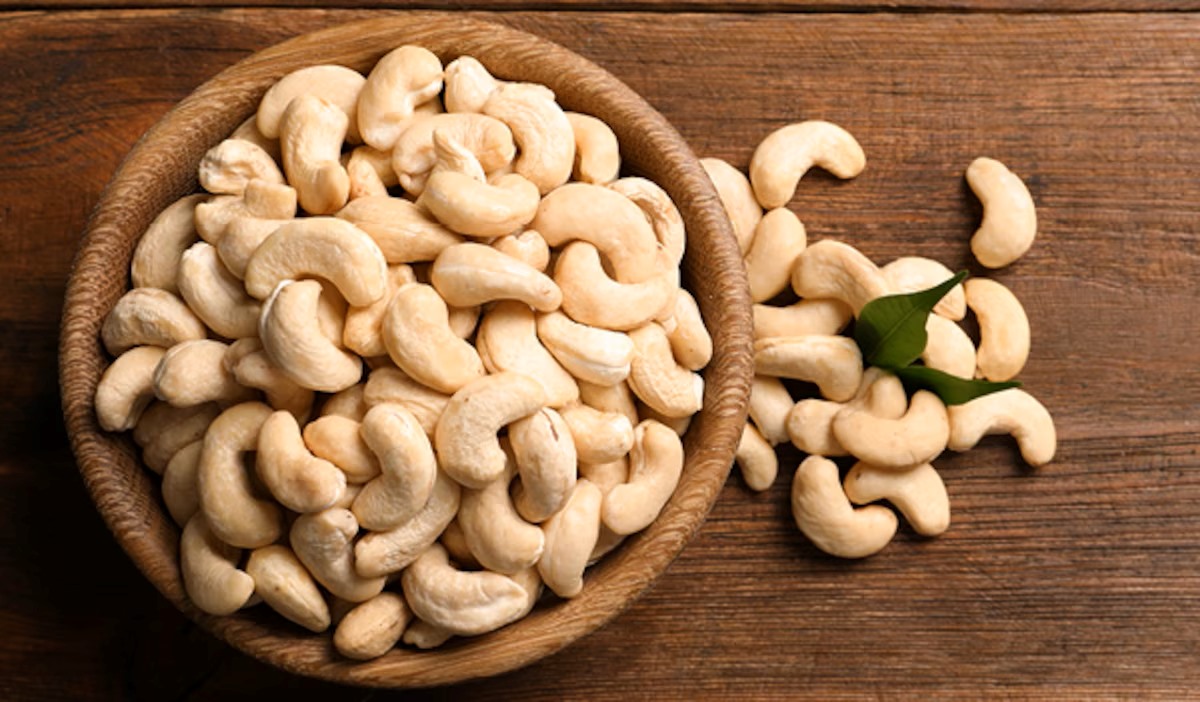




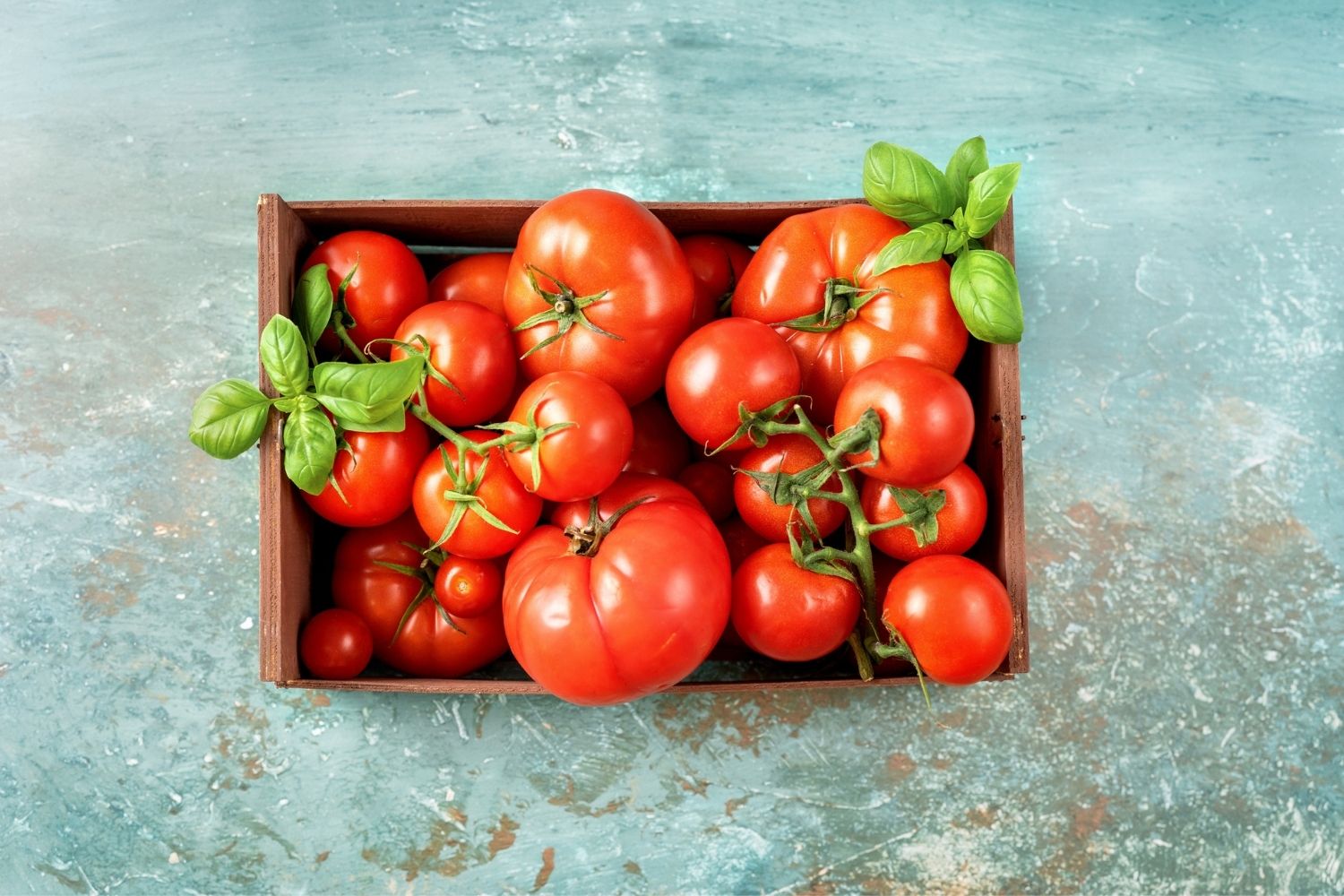


0 thoughts on “How To Store Curry Leaves For Long Time”